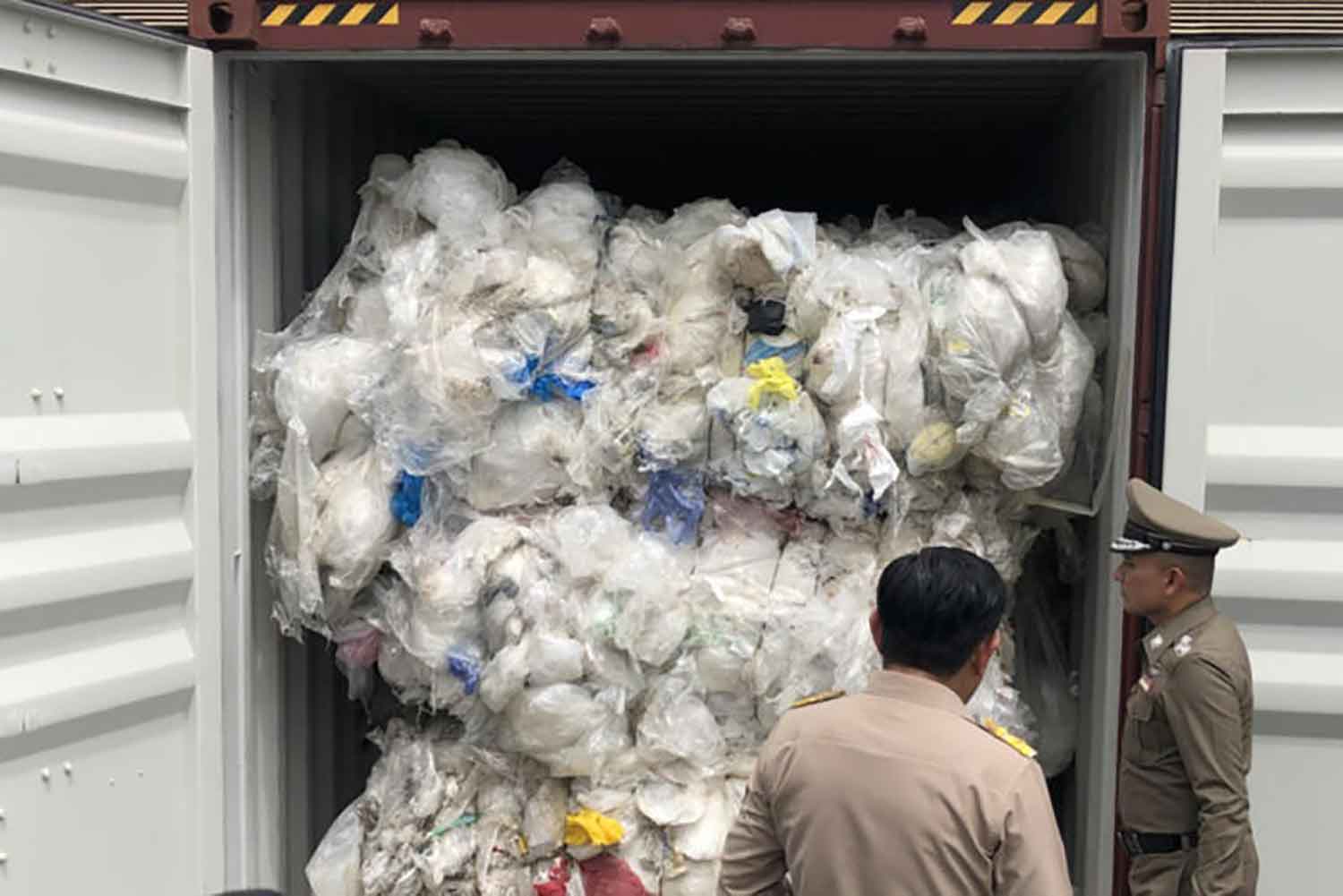
More than 100 environmental groups have called on the government to prohibit the import of plastic waste and instead encourage the use of domestic plastic waste for recycling as a way to safeguard the environment and promote the circular economy.
The network of 107 civil society and environmental activist groups released a joint statement on Thursday demanding agencies formally announce a policy to ban plastic waste imports within the year, as well as amend laws and regulations to seal off legal gaps that allow the use of imported plastic waste in the plastic recycling industry.
The environmental groups are objecting to revisions to a plan to ban plastic waste imports by September 2020 by a subcommittee on plastic waste and electronic waste management.
The subcommittee reversed its resolution and postponed the plastic waste ban for another five years.
Penchom Saetang, director of Ecological Alert and Recovery Thailand (Earth), said despite the Industrial Works Department saying that no new plastic waste import licences had been issued, plastic waste was still flowing into the country, brought in by recycling factories in the duty-free zone, indicating a loophole in the regulations.
"We have found imported plastic waste of up to 150,000 tonnes was brought in in 2020, an increase of 2.69 times on the previous year.
"For this year, around 71,000 tonnes of plastic waste are imported into Thailand up until June," Ms Penchom said.
She said the legal exemptions and postponement of the plastic waste ban allows foreign recycling factories to make a profit from cheap imported plastic waste at a great cost to Thailand's environment.
This also jeopardises the domestic plastic waste trade and the country's circular economy goals.
Meanwhile, Minister of Natural Resources and Environment Varawut Silpa-archa said the ministry is working with the Pollution Control Department to present a control measure for plastic waste imports to the National Environment Board.
The measure would limit the quota for plastic waste imports this year to 250,000 tonnes, before phasing out that quota by 20% every year until reaching a total ban on plastic waste imports in 2026.